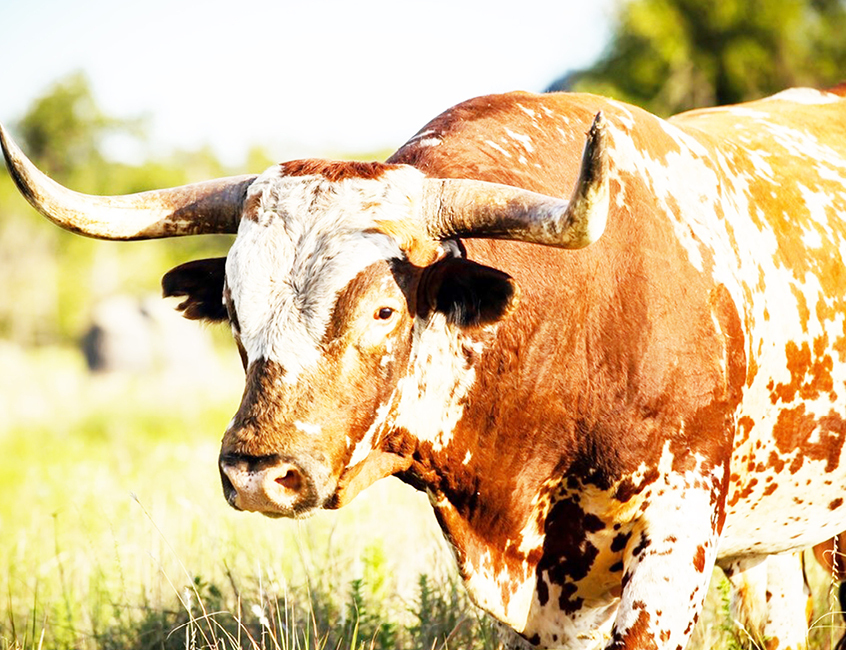For many, the purchase of a bull is worth the investment, but take your time and follow these tips when buying a bull for your herd.
Investing in a bull is a big decision, and buying one is not a choice to be made hastily. Bulls require thorough research and generally a large initial investment in order to reduce the risks of getting a poor quality or ineffective animal.
Unfortunately, even good research and pre-planning don’t mean that you will find a bull that lasts for many years. This uncertainty makes owning them a rather risky proposition. (If you’d like to skip ahead, towards the end of this article, we discuss a few of the pros and cons of owning a service bull as opposed to artificial insemination.)
The criteria that you use when looking for a new bull will depend on what your long-term plan for the herd is, as well as the animals’ intended role on the farm.
- Supplementary Polls: Fintiri Maintains Lead As INEC Concludes Collation Today
- Post-election crises fester in APC, PDP, LP, NNPP
For example, cattlemen looking for a bull to go with a herd of Black Angus heifers would likely want a Black Angus bull that will produce smaller calves. As heifers haven’t given birth before, it will be more challenging (and risky) to breed them with a bull that produces large calves.
What Should I Look for in a New Bull?
Be careful not to rush into the decision of buying a bull. Know what traits you’re looking for and study the catalogs to get a better idea of which ones would suit your needs best.
Fourth-generation cattleman (and my brother-in-law) Kordell Krispense, who raises Black Angus cattle here in Central Kansas, shared with me the main traits (in order of priority) that he looks for in a potential new bull:
Calving ease: This indicates a bull that produces lower weight calves by throwing a slightly premature calf (by about a week or two).
Docility: The temperament and calmness of the animal. Kordell looks for bulls that measure in the top 25 percent of the Angus breed for docility.
Carcass traits: This would indicate the marbling of the meat and the size of the ribeye area.
Heifer pregnancy: This indicates how easily his daughters will breed.
Where is the best place to buy a bull?
You can buy a bull from a variety of places, but use caution and wise judgement before agreeing to purchase one. From an individual simply parting ways with an animal (in which case, you should ask why), to a professional breeder that raises cattle with high-quality genetics, or even a local sale barn— you have options on where to purchase a bull.
Problems can arise, however, if you simply choose and purchase without any idea of the bull’s history, prior health, current fertility, etc. Good breeding stock is usually not going to be sold through a sale barn, although there are some exceptions.
If a bull is at a general livestock sale, there is a decent chance that something could be wrong with him and he is likely headed for slaughter. With this large of an investment, don’t play games and risk buying a no-good bull. For these reasons, it’s a good idea to pursue buying one from a trusted breeder.
How long will my bull last?
A bull’s usefulness will vary from animal to animal. Some bulls can breed for many years, while others can go bad in their first year (although it’s not likely).
Kordell shared that bulls should probably be tested each time before they are turned in with the cows to make sure they’re still viable. Veterinarians will test them and have a cutoff of about 70 percent, meaning that the bull has to have 70 percent or more of the sampled cells (semen) be alive.
Should I buy a bull or AI (Artificially Inseminate) my cows?
While it might seem like a large investment to purchase a bull, artificially inseminating your entire herd also comes at a price. Furthermore, AI generally carries only about a 60 percent success rate. Even if you go the route of AI, you’ll still need a clean-up bull to make sure your cows get bred.
With a service bull, Kordell has seen around a 93 to 94 percent success rate.
One perk of using artificial insemination? You can improve herd genetics, as you won’t be limited to only using the bull in your pasture. When purchasing semen for AI, you’ll have a chance to introduce higher-quality genetics into your herd without the huge investment of purchasing a more expensive bull.
Purchasing a bull can be an exciting step in the process toward furthering your own herd. Take some time to study traits and narrow down what your highest priorities are to find in a bull.
Make a plan for how you would like your herd to grow in the future years. Having this game plan in mind will help as you continue to make decisions and grow your operation.
SOURCE: Hobby Farms

 Join Daily Trust WhatsApp Community For Quick Access To News and Happenings Around You.
Join Daily Trust WhatsApp Community For Quick Access To News and Happenings Around You.


